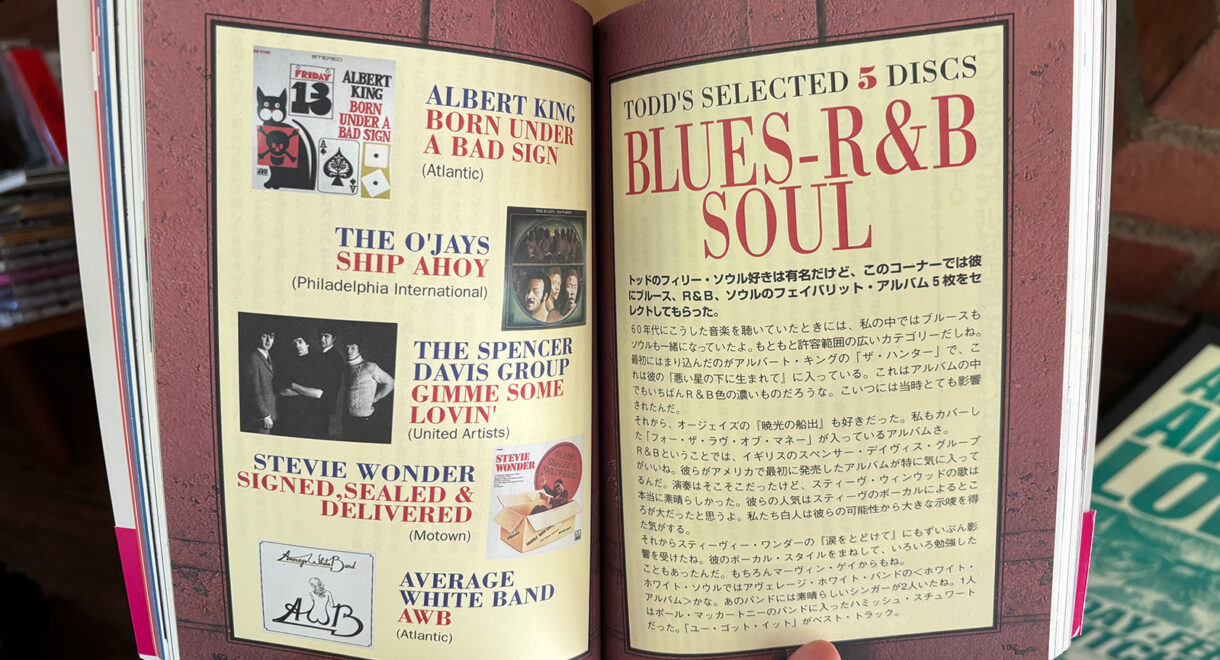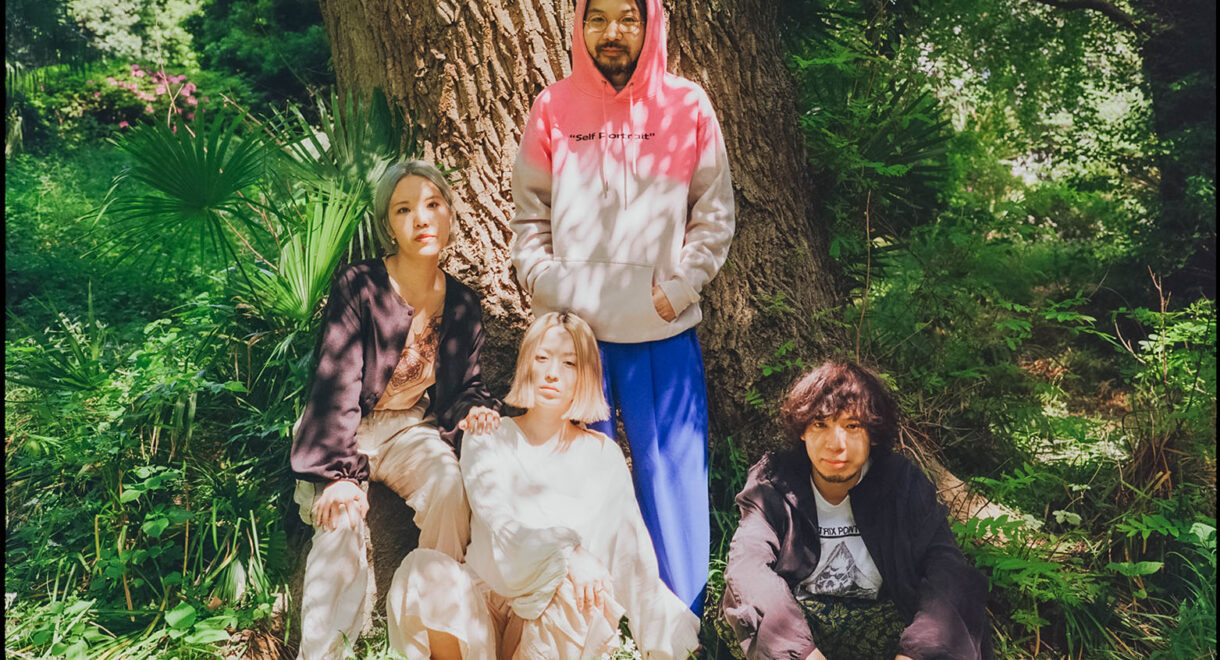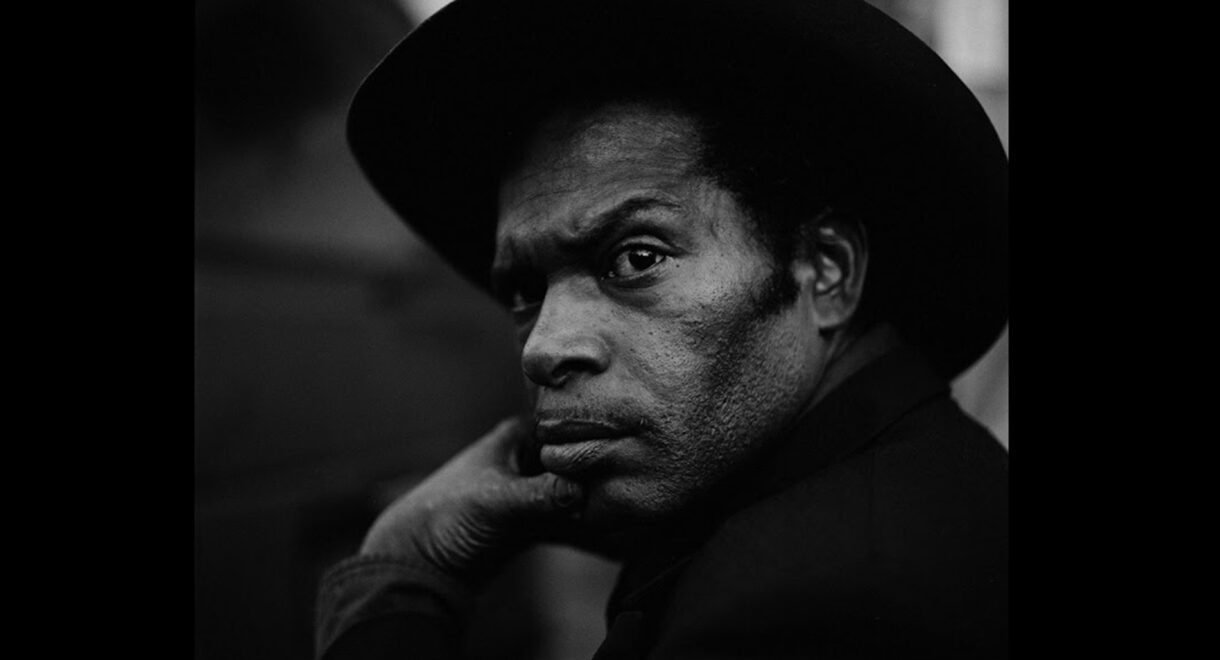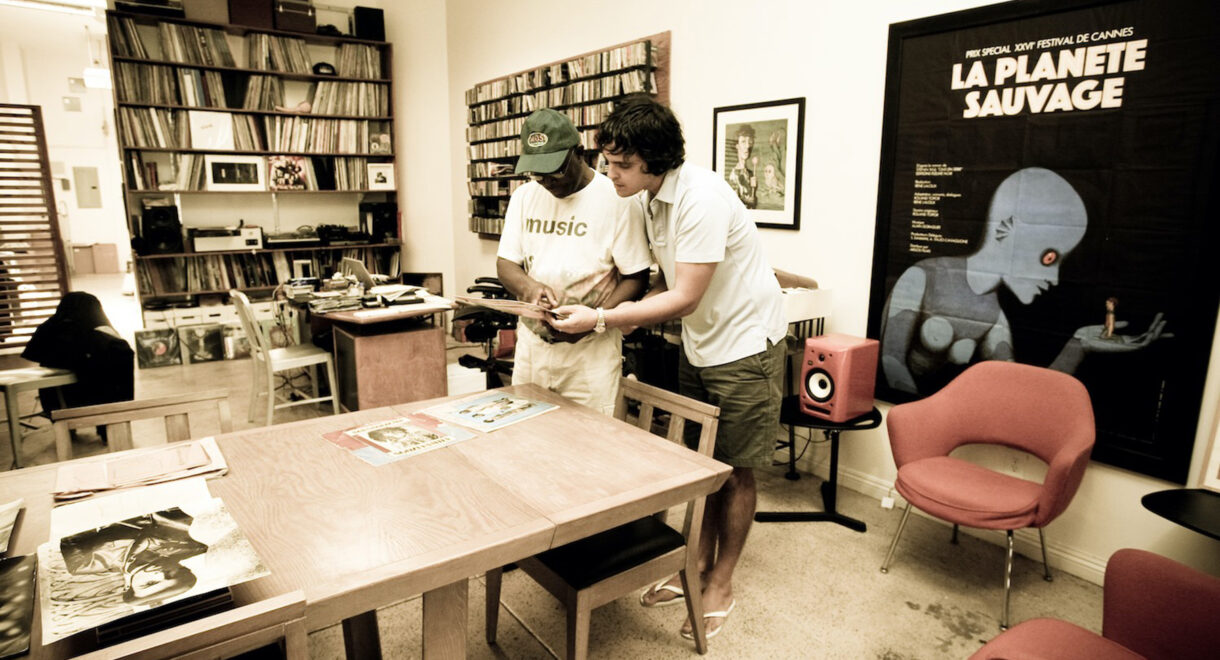“Dubwise but not exactly dub, rich in ambience but not exactly ambient music.” With three of the classic Sade albums (Promise, Diamond Life, Stronger Than Pride) recently repressed […]
Grime, Ragga, African rumba, and beyond: On the genre-bending BBC show ‘Have You Heard George’s Podcast?’

A portable listening party with George the Poet and producer Benbrick.
In the genre-bending BBC podcast “Have You Heard George’s Podcast,” George the Poet and producer Benbrick combine music sampling, spoken word poetry, and social commentary to create an art-activist work of sound. Benbrick further elevates the podcast with his contemporary hip-hop production, ethereal cinematic compositions, and multilayered soundscapes. Below, we’ve included some of our favorite episodes from the podcast along with a few featured sounds and samples.
“Under my education system, we set aside time every day to listen: listen to the voices, decisions and the choices, musicians and politicians, the whispers and the noises.” (Ep. 3.5)
Freedom Sound by The Skatalites (Sampled in Ep. 17)
The Peabody Award-winning podcast looks at African diasporic music from all angles, discussing genres across decades and continents including grime, dancehall, ragga, R&B, soul, political hip hop, electro hop, road rap, gangsta rap, afrobeat, African rumba, Kidandali, jazz, and beyond.
Ep. 24 – The Sixties (Soul, Political Rap, Gangsta Rap)
The podcast is a lot like a portable listening party, and George is its unconventional DJ. His record collection and library include more than just music, allowing him to smoothly transition from historically relevant songs into archival audio news footage into acted-out scenes.
You can hear George elegantly mix rhythmic historical backgrounds with Sam Cooke’s “A Change is Gonna Come” from 0:16-2:14 of Episode 24. He mixes political clips and rhyming historical backgrounds in the same way he mixes songs: with emotion, with groove, and with personality.
A Change Is Gonna Come by Sam Cooke (Sampled in Ep. 24)
The background noise in this podcast is produced just as intentionally as the sounds in the foreground, bringing us intimately into George’s world. Instead of talking at the listener about the importance of music and the communities that birth it, George sonically brings the listener into the experience of the music. For example, in Episode 1 from 3:46-5:20, we ride through the streets of North-West London with George as he sings along to Dun D’s “Ooh Wee.”
If music magically transports us to another world, then contemplative listening is the transportation device. As George says in Episode 5:
Imagine yourself listening to my voice and everything else fading into the distance as white noise. Picture yourself right now while you do your thing. Start zooming in to your face, through your skin, through your flesh, and through your bone to the center of your dome. Now picture these words entering your dome. Picture the picture they’re painting on your mind, one word behind the other like a conga line.
Summertime / Sometimes I Feel Like a Motherless Child by Mahalia Jackson (Sampled in Ep. 28)
Of course, intentional listening isn’t always just about personal reflection, and as George shows us, listening is especially useful as a collective practice. Rhyming about the emerging dancehall and hip hop scenes of the ’60s and ’70s in Episode 26 (6:11-7:12), he reveals the power of communal listening to unify against oppression:
“Music is the way we react. Think about it – Jamaican music in the ’60s was driven by neighborhood events with big speaker systems and the ’70s Jamaican New York community used those speakers as a source of unity.“
Ep. 26 – Vibrations (Gangsta music, American rap, Jamaican dancehall)
Back then, these events relied on massive speakers and bouncing beats, and George demonstrates how these events have evolved. He paints himself as an emcee, and this podcast as a musical event. His approach is clearly working and, much like dancehall and rap, this podcast has become a community project that has blown up, bringing Black stories to massive audiences around the world.
One Spliff A Day by Billy Boyo (Sampled in Ep. 26)
It’s also crucial to point out that “Have You Heard George’s Podcast?” is not just an analysis of Black music and its ability to challenge institutionalized racism. The podcast is itself a revolutionary event that touches on topics across culture. Keep in mind that Chapters 1 and 3 are the most relevant episodes for a musical experience. In addition, we especially love the following episodes:
Ep. 2 – Popcorn (London rap / music as an outlet for marginalized youth)
Ep. 9 – Sabrina’s Boy (American hip hop / Blaxploitation cinema)
Ep. 17 – The Bag (Jazz, R&B, ska, rocksteady, reggae, hip hop)
Ep. 20 – Young (Jay-Z / music’s radical economic potential)










